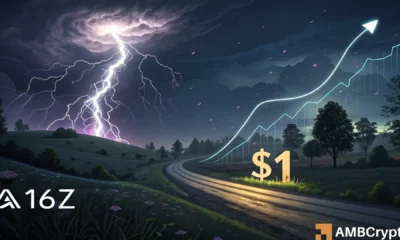Argentina: ‘Crypto-adoption is high, but stablecoin adoption is really high too’

The end of 2021 saw many quarantining at home due to the Omicron variant of the COVID-19 virus. However, Ethereum founder Vitalik Buterin was in Argentina. Following his trip, Buterin shared some thoughts on the state of crypto-adoption in the South American country.
Argentinian adventures
Citing a piece he wrote in 2013, the Ethereum founder reported that he predicted Bitcoin would help the people of Argentina and Iran safeguard their wealth. What’s more, he claimed to guess that stablecoins would rise. After his visit to South America, he said,
“Last week, I actually went to Argentina! My verdict: generally correct. Cryptocurrency adoption is high but stablecoin adoption is really high too; lots of businesses operate in USDT. Though of course, if USD itself starts showing more problems this could change.”
Argentina has been noted for its relatively high crypto-adoption rates, both in terms of crypto-payments and Bitcoin mining. Notably, inflation is a major push factor. In fact, the Blockchain LatAm Report for 2021 said,
“A survey commissioned from Toluna by Sherlock Communications which asked Argentinians why they would consider investing in cryptocurrencies found that 66% of respondents were most concerned with protecting their savings.”
The popularity of stablecoins adds up as well. Argentinians are only allowed to withdraw limited volumes of U.S. dollars and have to pay taxes on the same. To protect their savings, USDT would be a natural choice.
Additionally, the country reportedly welcomed its first Bitcoin-indexed ETF in October 2021.
Praise Ethereum!
Buterin was far from traveling incognito as he explored Argentina. On 18 December, the former President of Argentina, Mauricio Macri, tweeted about meeting the Ethereum founder. According to a rough translation, he said,
“Fascinating encounter with Vitalik Buterin, creator of Ethereum, one of the most innovative decentralized technologies of our century. Its Ether currency is one of the best valued in the world. We chat about the role of crypto and blockchain opportunities for states…”
This indeed is a statement filled with possibilities. However, it remains to be seen whether the current administration would agree.
For his part, Buterin also discussed that government censorship might have an effect on Bitcoin. He proposed that while Bitcoin could “survive” under state control, it might not “thrive.”
Coming soon…a crackdown?
As Buterin hinted, it’s not a smooth ride for crypto-companies in the region. At the end of December, the Central Bank of the Argentine Republic announced it was investigating crypto-companies that offered “extraordinary returns.”
What’s more, crypto-analysts will need to keep an eye on the U.S. dollar to see whether Argentina’s alleged USDT strategy is sustainable.






